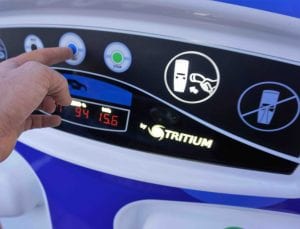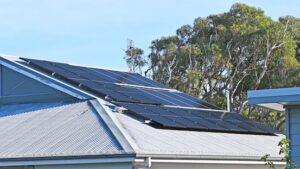The South Australia state government says it is aiming to ensure that all new car sales in the state are fully electric by 2035, and is calling on the federal government to finally introduce a fuel efficiency standard to hasten the transition to EVs.
The state Liberal government unveiled the details of its electric vehicle plan over the weekend, which reaffirms several key funding initiatives, and its interim and long term targets, but makes no new funding announcements. Most of all, it affirms its intention to lead on EVs in the same way as it has led on the shift to wind and solar.
The state government is looking to go fully electric by 2030 in areas where it has control and influence – in government fleets, taxis and ride share fleets – and wants to make all new passenger car sales fully electric by 2035.
Premier Steve Marshall and energy minister Dan van Holst Pellekaan says South Australia’s share of 60 per cent wind and solar, and its target of reaching net 100 per cent by 2030, make it the best place to push forward with EVs.
“Electric vehicles will deliver the biggest step change in transport since Henry Ford mass-produced the Model T last century, delivering across the board increases in multi-factor productivity, and the opportunity to integrate with a digitised power grid,” they said in a statement.
“By 2030, we want EVs to be mainstream, and the common choice for new car purchases. We want the government’s fleet, and public taxi and ride-share fleets to be fully electric. As vehicle manufacturers and technology developers around the world pivot to electric transport, we want all new passenger vehicles sold in South Australia to be fully electric by 2035.”
That 2035 date for all electric sales appears to be more aspirational than an outright ban on petrol and diesel sales, but it puts the state within touching distance of some of the progressive European countries. The UK has just announced a ban on fossil fuel cars by 2030, while Norway’s comes into force in 2025.
The plan – which comes in the same week as its climate plan, which aims for a 50 per cent cut in emissions by 2030, net zero by 2050 and a 500 per cent renewables target by the same year – cites the previously announced spending of $18.3 million on a state-wide charging network and smart charging trials.
“Nearly 60 per cent of electricity generated in South Australia is from zero emissions renewable sources, and we aspire to become a net exporter of renewable energy, generating net-100 per cent renewables by 2030,” the ministers said.
“As transport emissions accounted for 30 per cent of South Australia’s greenhouse gas emissions in 2018-19, electrification of transport is a priority to our target of reducing greenhouse gas emissions by at least 50 per cent by 2030, and net zero emissions by 2050.”
The ministers say that EVs, and the emergence of EV-based “virtual power plants” – using the car batteries as a key grid resource – will be an important part of grid management, and help deliver big cost savings into the future.
“As a key structural change to South Australia’s energy market, transport electrification could deliver bill reductions of $20 to $84 per annum in 2025, increasing to $95 to $324 per annum in 2030, depending on rates of uptake,” the document says.
South Australia currently has more than 6,800 government vehicles, which will all be electric by 2030, and the police force is already taking delivery of five Hyundai Kona EVs.
South Australia will also advocate for national vehicle fuel efficiency, fuel quality, and smart charging standards, as well as tax reform addressing fuel excise, fringe benefits taxes and road user charging, and extended producer responsibility for batteries.
The fuel efficiency standards are welcome, as these have been the main driving force behind the greater uptake of EVs in other international markets, and Australia stands almost alone in not having any – at a great cost in added fuel costs, and extra emissions and health impacts.
South Australia was the first to openly propose the controversial EV road user charge, which the car industry says should not be imposed without offsetting incentives. The state does not release the details of that plan – that it likely to emerge in the New Year, but says that reform of excise and road user chargers is necessary.
A version of this story was first published on out EV-focussed sister site, The Driven












